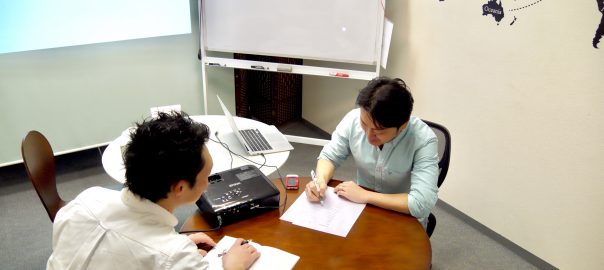こんにちは!Shotaです。
Are you keeping social distance?
Are you putting on a mask?
Are you trying to stay home except when it’s necessary?
Keep going like that to overcome the coronavirus!
一人一人の協力で、早くコロナが収束するよう、頑張りましょう!
そして願わくば野球が見たい!
さて、本日の助動詞はWill/Can/Shouldです。
「Willは未来」「Canは 〜できる」「shouldは 〜すべき」だけではありません!
他の意味こそ、よく使うのでしっかり理解しましょう。
【Will】
Willは未来のことを表したり、強い意志を表したりする用法があります。
(1)~だろう(未来)
/It will be sunny (tomorrow).
(S) (助) (V) (C)
明日は晴れるだろう。
未来のことを表現するときに使います。
ちなみにこの例文のように天気のことを表現するときは、主語はItを使います。
(2)~する(意志)
・I’ll be back.
(S,助) (V) (C)
必ず戻ってくるぜ。
ターミネーターの名台詞ですね。”be back” で「帰ってくる」という表現になります。「俺は必ず戻るぜ」という強い意志を感じる台詞ですね。このように主語の人が自らの意思で「~する」という時にwillを使います。I’llはI willの略です。
【Can】
Canには「~できる」といった可能の意味のほかに、Mayよりカジュアルな「許可」の意味や、「~しうる」といった、潜在的な可能性を表す用法があります。
(1)~できる(可能・能力)
//I can play classical guitar.
(S) (助) (V) (O)
私はクラシックギターが弾けます。
何かをする能力があることを表すために使う表現です。
(2)~していい(許可)
/Can I use the bathroom?
(助) (S) (V) (O)
トイレ借りてもいいですか?
Mayの許可に比べてカジュアルで、目上の人に許可を求めるというより、友達や知り合いに「~していいかい?」と尋ねるような使い方です。
(3)~しうる(可能性、推量)
He can win the Nobel prize.
(S) (助) (V) (O)
彼はノーベル賞を取ることができる(取りうる)かもしれない。
このcanの可能性・推量はmayの推量とどう違うのでしょうか。Canの一つ目の意味は「~できる」という、能力を表す意味でしたね。つまり「~することができる(能力)」+「~かもしれない(推量)」が合わさって「~することができるかもしれない」⇒「~しうる」となっているのです。主語が潜在的に持っている能力を背景に、だから「~しうる」と言っているわけです。上の例文では、「彼ほどの能力があればノーベル賞を取りうるかも」というニュアンスが含まれているわけですね。Mayにはこのニュアンスはありません。
【Should】
Shouldは人に「~したほうがいいよ」くらいの軽いニュアンスでアドバイスする意味や、「~なはずだ」といった確信の意味があります。口語でよく使います。
(1)~したほうがいいよ(忠告・軽い義務)
You should take a rest.
(S) (助) (V) (O)
休んだほうがいいよ。
You should watch the new Star Wars movie.
(S) (助) (V) (O)
スターウォーズの新作、観るべきだよ。
この用法では「~したほうがいい」「~すべき」といった、人にアドバイスしたりオススメしたりするときに使えます。mustに比べたらshouldの方が弱いニュアンスです。
(2)~のはずだ(推量)
It should be OK.
(S) (助) (V) (C)
おそらく大丈夫なはずだ。
He should be (at home).
(S) (助) (V)
彼はおそらく家に居るはずだ。
この推量の確信度はmustとmayの間くらいです。(60%くらい)助動詞はそれぞれ似たような意味があっても、単語そのものの意味合いの強さが、それぞれの用法に影響しています。
~~~~~~~~~~~~~~~~~~~~~~~~~~~~
さて、本日見てきた助動詞のマイナーな意味、意志のWill/可能性のCan/推量のShouldですが、実はめちゃくちゃ使います。
社会人としてお仕事をされている方は特にわかると思いますが「私がやります」→ “I’ll do that”「弊社にて対応させていただきます」→”We will address the isuue “など、自分がやるよと明示するために意志のWillを使う事がよくあります。
可能性や推量のCanやShouldは、「確実にできる」と言えない時、つまりジャパニーズビジネスマンお得意の「曖昧に濁したい時」にベストの言い回しです。Canの過去形のCouldやShould、さらにwillの過去形のwouldはまんま「日本人のビジネスの際の会話」に役立てる事ができます。
”We could do that, but…”「できるかもしれませんが…しかし」とかいい例ですね。Canと言ってしまうと「できます」になっちゃうので、濁して「コストが」とか「キャパシティが」など、条件を詰めて行く。。こういう状況、ありませんか?正直、私もよく使います。
で、この助動詞の過去形の形は、日本語特有の「敬語」も表現する事ができます。
例えば、初対面の相手の名前を聞く時を想定しましょう。
レベル0 “What’s your name?” 「名前何?」→友達ならいいですが、ビジネスでは落第ですね。
レベル1″Your name please?” 「お名前いいですか?」→対等ならビジネスでもギリギリOKですが、相手がお客さんならもう一段階丁寧に。。上から目線な感じは否めません。
レベル2″Could I have your name?”「お名前お伺いしてもよろしいでしょうか?」→この表現なら、うまく日本語の敬語を表現できています。Canは「できる」ですが、それを疑問形にすると「できますか」になります。それをさらに過去形のcouldにすると「仮定法」的な使い方になって「(もしあなたがよろしければ、お名前伺っても)よろしいでしょうか」となるわけですね(仮定法に関しては後のブログで説明します)
長くなってしましましたが、自分が言いたいのは「日本人こそ、助動詞マスターになるべき」という事です。Will/Can/Shoudに関しては、マイナーな意味こそ習得できるよう、努力してみてください!









